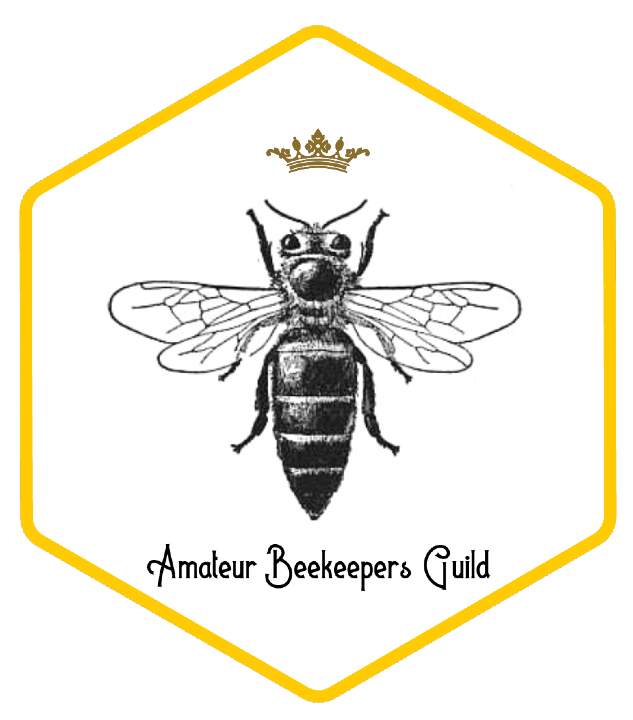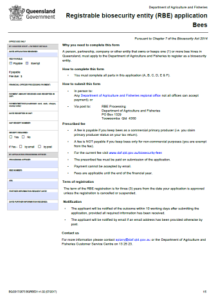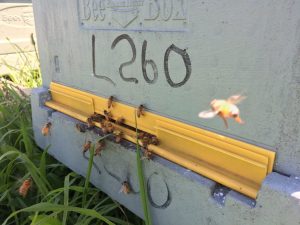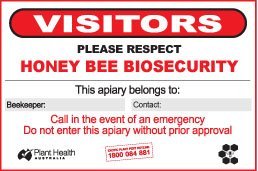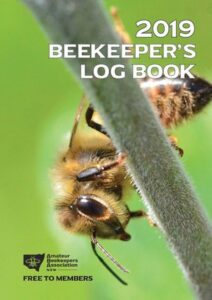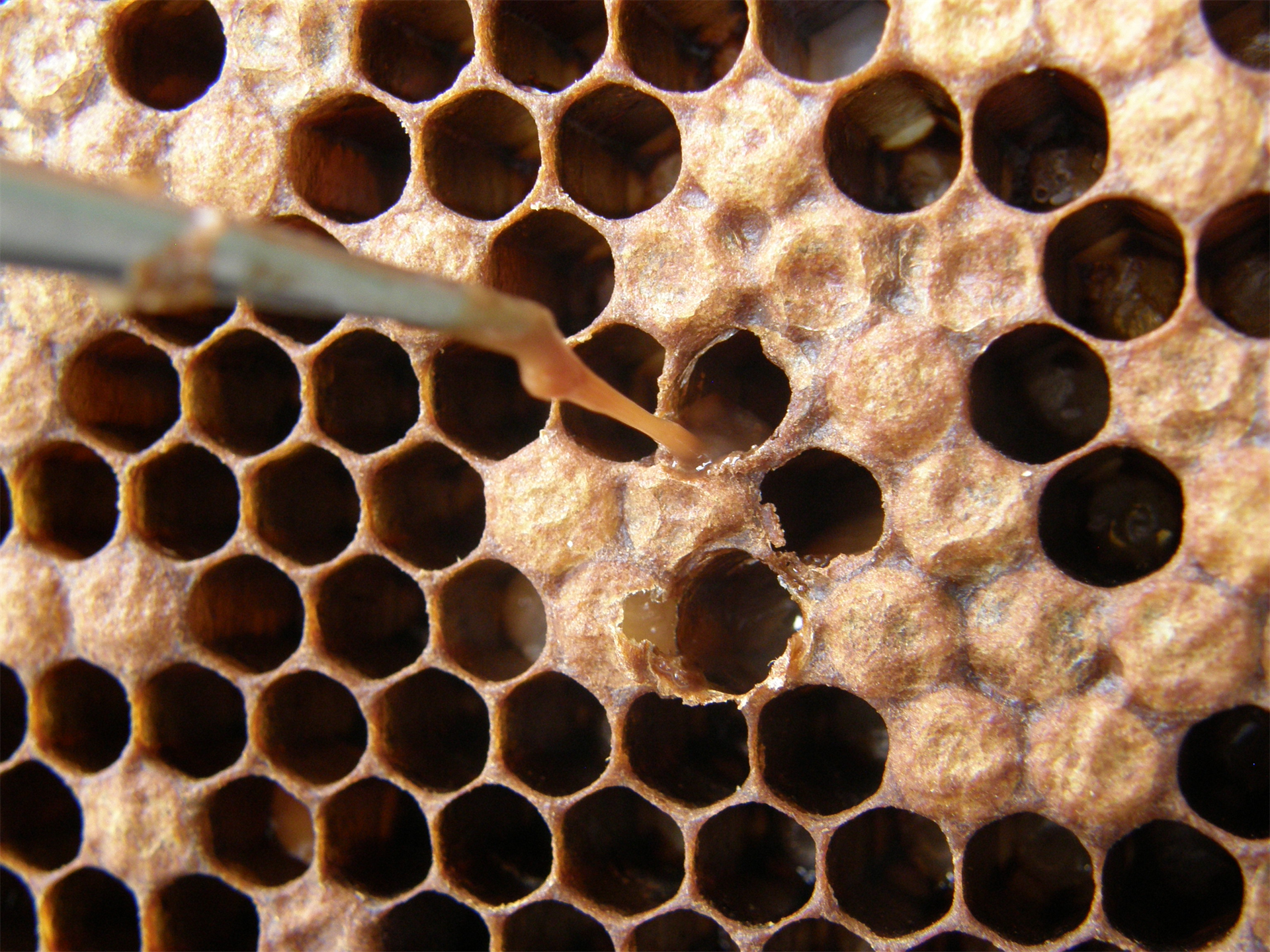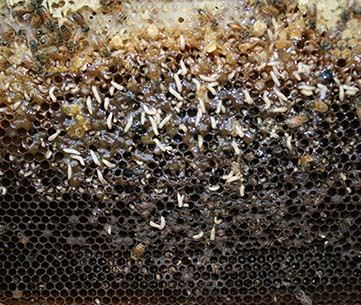LEGAL OBLIGATIONS
Bees are considered to be livestock under the Biosecurity Act (2014) and as such there are certain legal obligations involved in keeping them. The following information refers to the legal obligations associated with amateur beekeeping.
It is a requirement under the Biosecurity Regulations 2016 that beekeepers are registered and that each beekeeper has a unique Hive identification Number (HIN). This “brand” must be applied in such a way that it can not be easily removed.
Information on your legal requirements and how to register can be found on the Business Queensland website.
In a nutshell the following applies:
- You must not be or become a beekeeper unless you are registered
- You must identify your hives with your registered hive brand (see below)
2. Applying your registered hive brand (HIN)
A registered hive brand consists of a combination of one letter (representing the surname) and one or more numerals.
If you buy a hive from another registered beekeeper, you must apply your registered brand to the new hive boxes. The first HIN on a hive must be placed in the centre of the front of the hive. If a hive is already marked or branded, you must place any subsequent marks or brands of the HIN in the corners of the front of the hive in a clockwise sequence, starting from the top left hand corner.
If you keep your bees at a site that is not your own property you are required to display a sign near the hives. The sign must be positioned to be clearly visible to all people approaching the apiary. The sign must contain;
- your full name; and
- your telephone number; and
- your registered hive brand (HIN)
A beekeeper who establishes a new apiary or who removes an apiary or part of an apiary from one site to another site must, as soon as practical after the event, make a written record of the establishment of the new apiary or of the removal of the apiary, or part of the apiary, to the other site.
This record is to be kept for 7 years.
There are many online applications that will assist in your record keeping, as well as traditional hard copy records.
5. Selling or disposing of hives or nuc’s
If you sell, lease, supply or dispose of a bee hive or nucleus hive to another person you are required to record the persons:
-
name and postal address; and
-
registered hive brand (HIN)
This record is to be kept for 7 years.
Unless water is available from natural sources, every beekeeper must provide a good and sufficient supply of water on every apiary site in a way that is readily accessible to the bees on that site.
Bees may drown if not provided with safe entry to water sources – below are some examples where bees can safely access water.
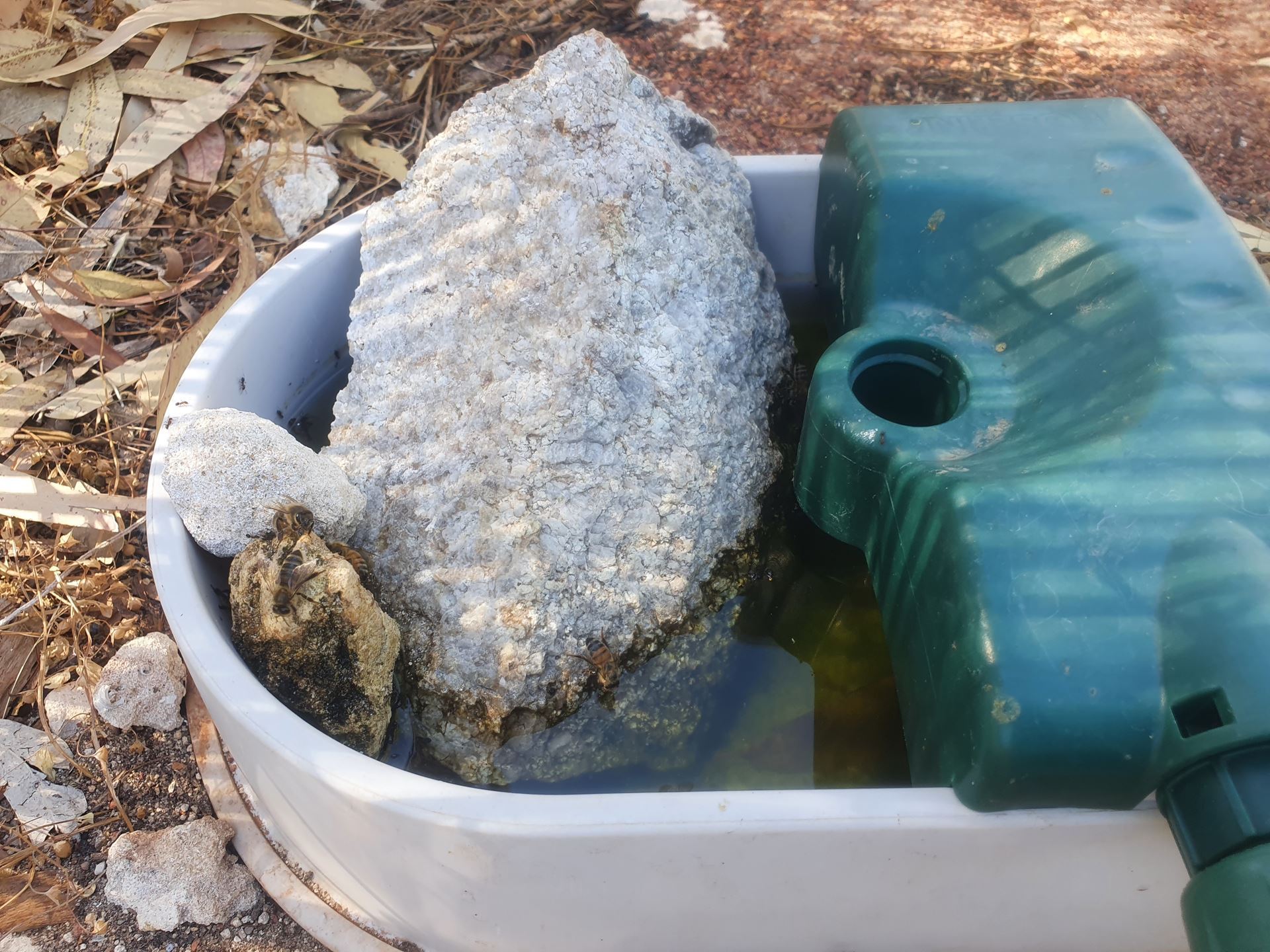

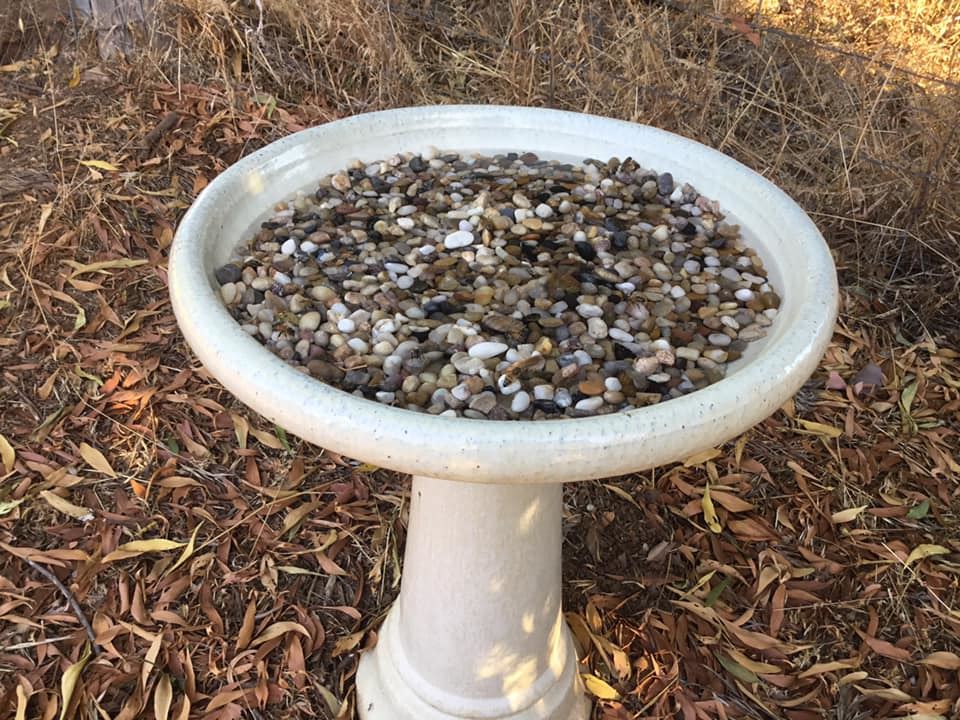
7. Provision of appropriate care
A person who owns, or has the charge, care or possession of, bees or any hive that contains, or has contained, bees must NOT:
- Store, or cause to be stored, a hive unless the entrance to the hive is closed
- Expose used hives, combs or honey in such a manner as may attract bees to rob from the hives, combs or honey
- Store hive products in a way that attracts declared pests to breed and develop in them
8. Reporting of declared pests
Beekeepers must immediately report the presence of declared bee pests to the Department of Agriculture and Fisheries. The current list of declared pests in Queensland is below.
In addition, there are a number of potential pests which are not yet present in Queensland but which MUST be reported if found. These include varroa mite, honeybee tracheal mite, various debilitating bee viruses and other bees such as Asian honey bees and africanised bees. You can read more about these established and exotic pests on the BeeAware website.
If you notice something unusual in your hive, or can identify a declared pest, Take a picture of what you have found and contact:
Be proactive about biosecurity! There is also an Australia wide site called Bee Aware with photos to help you identify pests and a free online biosecurity course which explains why biosecurity is important, describes the main pest threats to bees and shows how to check hives for signs of pests and diseases.
Queensland
Tracheal mite (Acarapis woodi)
Tropilaelaps mites (Tropilaelaps clareae and Tropilaelaps mercedesae)
Varroa mites (Varroa destructor and V. jacobsoni)
Asian honey bee (Apis dorsata, A. florea, A. cerana other than A. cerana javana)
Braula fly (Braula coeca)
Bumblebee (Bombus terrestris)
Africanised bee (Apis mellifera scutellata)
American foulbrood (Paenibacillus larvae)
Asian honey bee (Apis cerana javana)
For details go to: Notifiable diseases (Queensland Department of Agriculture and Fisheries)
9. Complying with local bylaws and policies
Before keeping bees on your property you must check with your local shire or council and make sure you comply with their bylaws relating to bees. Every local government authority currently has different rules – some charge an annual fee, others require stringent compliance with a very narrow set of regulations, others are happy as long as your neighbours are happy.
The City of Gold Coast require the following to keep honey bees.
If you get the opportunity, please read Best Practice Guidelines for Urban Beekeeping which outlines responsible beekeeping practices.
10. Registering as a food business (if you plan to sell your honey)
Processing or selling honey commercially, even in small quantities, is considered to be a “food business” under the Food Act 2006 and associated regulations. Before operating your food business you need to register or notify your business with the relevant enforcement agency, either the:
-
local government Environmental Health Services or the
- Department of Health, Environmental Health Directorate.
The organisation you notify or register with depends on where you operate, and what type of business you are operating.
Most honey based food businesses will need to register with their local government.
Your local government will require you to meet certain health requirements relating to the safe preparation of your honey products and may involve regular inspections of your prepration facilites, annual fees and so on. You can read more about what is required for a home-based business on the Department of Health website.
Other legal requirements around selling honey include the need to label your product. The Food Standards website has a online tool to help you create your own nutrition labels. Pre-printed nutrition labels can be purchased from most local beekeeping suppliers.

